Filter by
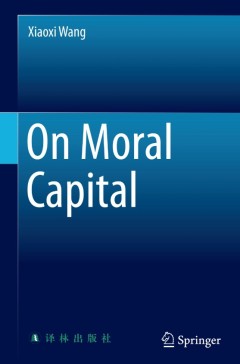
On Moral Capital
This book promotes the original concept of “Moral Capital” as the key to analyzing the nature and function of morality in economic activities. The book is divided into three major sections. In the first, the author argues that the logical connections between morality and economy and those between morality and profit provide a concrete theoretical basis for the concept of moral capital. In t…
- Edition
- 1
- ISBN/ISSN
- 978-3-662-45543-2
- Collation
- XI, 266
- Series Title
- -
- Call Number
- -
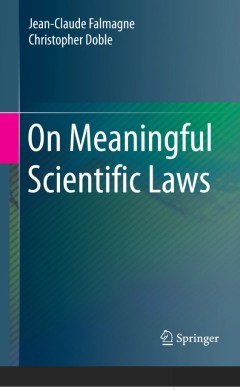
On Meaningful Scientific Laws
The authors describe systematic methods for uncovering scientific laws a priori, on the basis of intuition, or “Gedanken Experiments”. Mathematical expressions of scientific laws are, by convention, constrained by the rule that their form must be invariant with changes of the units of their variables. This constraint makes it possible to narrow down the possible forms of the laws. It is clo…
- Edition
- 1
- ISBN/ISSN
- 978-3-662-46097-9
- Collation
- XIII, 170
- Series Title
- -
- Call Number
- -

Ocean Governance, Regimes, and the South China Sea Issues
This book uses Chinese version of dialectics to present interpretations of ocean governance, international regimes, issues in the South China Sea in general and the Chinese U-shaped line in particular, through the one-dot theory. It especially serves as a tool for non-Chinese researchers and experts interested in analyzing international relations issues from a Chinese perspective. The dial…
- Edition
- 1
- ISBN/ISSN
- 978-981-287-328-6
- Collation
- XIII, 269
- Series Title
- -
- Call Number
- -
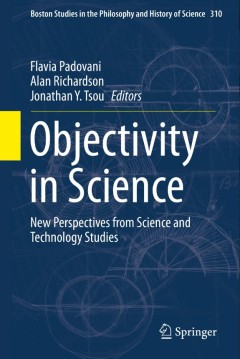
Objectivity in Science
This highly multidisciplinary collection discusses an increasingly important topic among scholars in science and technology studies: objectivity in science. It features eleven essays on scientific objectivity from a variety of perspectives, including philosophy of science, history of science, and feminist philosophy. Topics addressed in the book include the nature and value of scientific object…
- Edition
- 1
- ISBN/ISSN
- 978-3-319-14348-4
- Collation
- VI, 226
- Series Title
- Boston Studies in the Philosophy and History of Science
- Call Number
- -
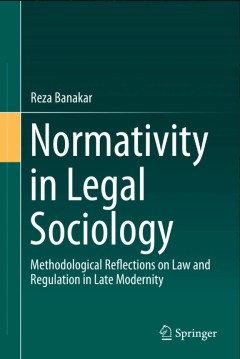
Normativity in Legal Sociology:Methodological Reflections on Law and Regulati…
The field of socio-legal research has encountered three fundamental challenges over the last three decades – it has been criticized for paying insufficient attention to legal doctrine, for failing to develop a sound theoretical foundation and for not keeping pace with the effects of the increasing globalization and internationalization of law, state and society. This book examines these three…
- Edition
- 1
- ISBN/ISSN
- 978-3-319-09649-0
- Collation
- X, 292
- Series Title
- -
- Call Number
- -

Boundaries of the Educational Imagination
The educational imagination is the capacity to think critically beyond our located, daily experiences of education. It breaks away from the immediacy of personal understanding by placing education within wider, deeper and longer contexts. Boundaries of the Educational Imagination develops the educational imagination by answering six questions: What happens when we expand continuously outwards f…
- Edition
- -
- ISBN/ISSN
- 9781928331018
- Collation
- -
- Series Title
- -
- Call Number
- 370 HUG b
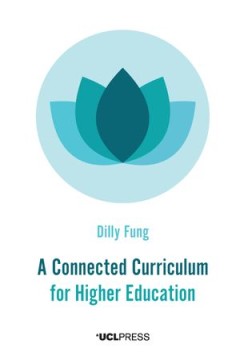
A Connected Curriculum for Higher Education
Is it possible to bring university research and student education into a more connected, more symbiotic relationship? If so, can we develop programmes of study that enable faculty, students and ‘real world’ communities to connect in new ways? In this accessible book, Dilly Fung argues that it is not only possible but also potentially transformational to develop new forms of research-based e…
- Edition
- -
- ISBN/ISSN
- 9781911576358
- Collation
- -
- Series Title
- -
- Call Number
- 375 FUN c
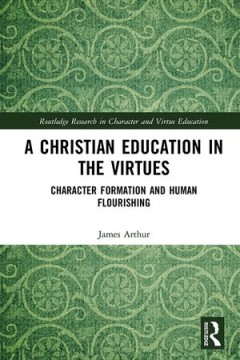
A Christian Education in the Virtues : Character Formation and Human Flourishing
A Christian Education in the Virtues examines the connection between human nature and human flourishing. It draws on ancient and medieval sources to explore the formation of the person based on a Christian anthropology, emphasising the communal nature of the virtuous life and provides a richer approach to the question of contemporary character education. The book argues that the only way to und…
- Edition
- -
- ISBN/ISSN
- 9781000417111
- Collation
- -
- Series Title
- -
- Call Number
- 370 ART c

Identity and Personhood: Confusions and Clarifications across Disciplines
This book approaches the concept of identity from both logical-linguistic and socio-cultural perspectives, and explores its implications for our understanding of who or what we persons really are. In the process, it bridges disciplines that often remain disconnected - most notably analytic philosophy and the social sciences - and offers a novel critique of citizenship and moral education, "iden…
- Edition
- -
- ISBN/ISSN
- 978-981-287-480-1
- Collation
- XV, 220
- Series Title
- -
- Call Number
- 370 SPL i
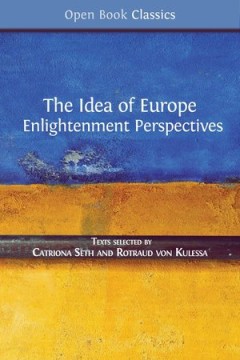
The Idea of Europe : Enlightenment Perspectives
In view of the challenges—many of which are political—that different European countries are currently facing, scholars who work on the eighteenth century have compiled this anthology which includes earlier recognitions of common values and past considerations of questions which often remain pertinent nowadays. During the Enlightenment, many men and women of letters envisaged the continent�…
- Edition
- -
- ISBN/ISSN
- 9781783743803
- Collation
- -
- Series Title
- -
- Call Number
- 100 SET i
 Computer Science, Information & General Works
Computer Science, Information & General Works  Philosophy & Psychology
Philosophy & Psychology  Religion
Religion  Social Sciences
Social Sciences  Language
Language  Pure Science
Pure Science  Applied Sciences
Applied Sciences  Art & Recreation
Art & Recreation  Literature
Literature  History & Geography
History & Geography